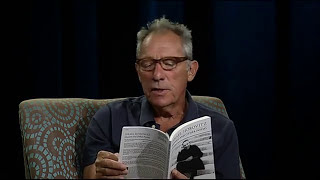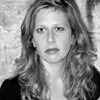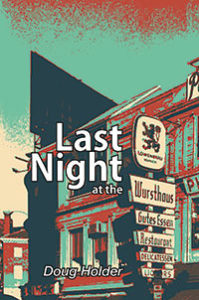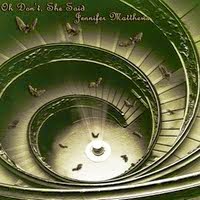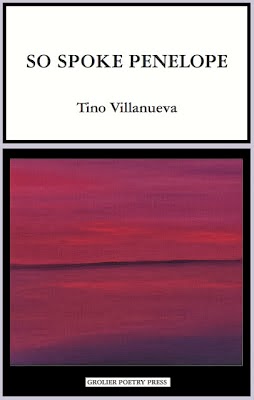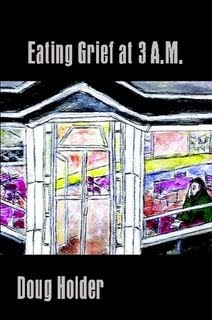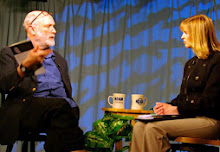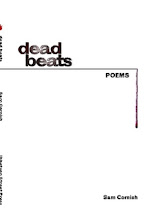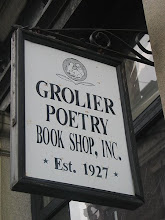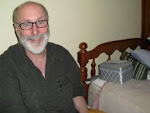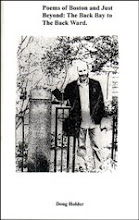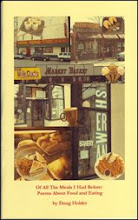
Cervena Barva Press Reading Series
Pierre Menard Gallery
10 Arrow St. (Harvard Square)
Cambridge, MA
Director: Gloria Mindock
Asst. Director: Mary Bonina
7:00 PM
Free
Reception to follow
Wednesday, February 20th
Philip E. Burnham Jr.
His poetry captures ordinary and extraordinary moments: history from the perspective of a teacher-scholar and traveler; the poignancy of family life; growth, loss, and remembrance; the mysteries of the universe; the seasonal transformations of the natural world around us and the wonder of new love. I have published three books of poetry, My Neighbor Adam (2003), Sailing from Boston (2003), and Housekeeping (2005). A fourth book, A Careful Scattering, will be published in 2007. My poems have appeared in various magazines and journals such as Margie, Lyric, and Atlanta Review. In addition to the Porter Square Bookstore I have given readings at Passim, Fireside at Cambridge Cohousing, Wordsworth in Cambridge, Borders in Boston, and the Forsyth Chapel at Forest Hills.
Afaa Michael Weaver
In 1951, Afaa Michael Weaver was born Michael S. Weaver to working class parents in Baltimore, Maryland. He graduated from the Baltimore public schools in 1968 at sixteen as a National Merit Scholar and began studying at the University of Maryland. In 1970 he began a fifteen year career as a factory worker and also served as an army reservist.
In 1997 Tess Onwueme of the University of Wisconsin gave him the Ibo name "Afaa," and in 2002 Dr. Perng Chingsi of National Taiwan University gave him the name Wei Yafeng.
While a factory worker he wrote and published poetry, short fiction, and free lance journalism and founded 7th Son Press. Under 7th Son he published the journal Blind Alleys, which featured Andrei Codrescu, Frank Marshall Davis, Lucille Clifton, Nikky Finney, and other poets and writers. As a free lancer he has written for the Baltimore Sunpapers, the Boston Globe, the Philadelphia Inquirer, the Chicago Tribune, and the Baltimore Afro-American.
In 1983 Weaver enrolled in Excelsior College, and in 1985 he received a National Endowment for the Arts fellowship. Immediately upon receiving the NEA fellowship he retired from factory life to enter Brown University's graduate creative writing program on a full university fellowship. In that same year his first book, Water Song, was published by Callaloo Press at the University of Virginia. He received his B.A. from Excelsior in 1986 and in 1987 he received his M.A. (M.F.A.) from Brown. At Brown he studied poetry with Keith Waldrop, C.D. Wright, and Michael S. Harper. His focus was in playwriting and theater, and for those concentrations he studied with the late George H. Bass and Paula Vogel.
In 1985 Weaver was commissioned to write a poem in honor of Roy DeCarava. The poem entitled "The Dancing Veil" was presented to DeCarava at the annual conference of the Society for Photographic Education on March 20-23, 1986 in Baltimore, Maryland. The poem was subsequently published in Hanging Loose.
He began his teaching career as an adjunct in 1987, teaching at New York University, the City University of New York, Seton Hall Law School, and Essex County College. In 1990, he began at Rutgers Camden and received tenure with distinction there as an early candidate. In 1998, he took a full time position at Simmons College as the Alumnae Professor of English.
In that same year he was named a Pew fellow in poetry.
Weaver was a member of the faculty of Cave Canem in 1997, and he was later given the honor of being the organization's Elder.
In the spring semester of 1997,he was named the sixteenth poet-in-residence at the Stadler Poetry Center of Bucknell University. He was the first poet of African descent to hold that position.
Between 1985 to 2005, he published nine collections of poetry, had two professional theater productions, published short fiction in journals and anthologies, and served as editor of Obsidian III, based at North Carolina State University. His short fiction appears in Gloria Naylor's Children of the Night, the sequel to Langston Hughes' anthology, Best Short Stories by Negro Writers. He has given several hundred readings in the U.S., Great Britain, France, China, and Taiwan.
Weaver is featured in the film A String of Pearls, a Camille Billops work which is part of the Hatch Billops Archives in New York City.
In 2002 he began studying Mandarin Chinese formally after teaching at National Taiwan University as a Fulbright scholar that spring. In 2004, he convened the Simmons International Chinese Poetry conference, the largest such gathering of contemporary Chinese poets held outside of China and Taiwan to date.
www.chinesepoetryconference.com
In April 2005 the Chinese Writers' Association in Beijing awarded him a gold friendship medal for his work with the conference.
A practitioner of Daoist internal martial arts beginning in his twenties, Weaver holds a first tuan black sash from the World Kuoshu Federation and is a disciple of Huang ChienLiang, grandmaster of the Tien Shan P'ai system.
For more biographical information readers may refer
to the Dictionary of Literary Biography and the Paterson Literary Review from the Paterson Poetry Center.
List of published books:
Water Song Callaloo Press/University of Virginia, 1985
some days it's a slow walk to evening paradigm press, 1989.
My Father's Geography University of Pittsburgh Press, 1992.
Stations in a Dream Dolphin Moon Press, 1993.
Timber and Prayer University of Pittsburgh, 1995.
Talisman Tia Chucha Press/Northwestern University, 1998.
The Ten Lights of God Bucknell University Press, 2000.
Sandy Point The Press of Appletree Alley, 2000.
Multitudes Sarabande Books, 2000.
Marc Widershien
Marc Widershien, a native Bostonian, began his studies of art and music at an early age. His principal teachers--Helmut Krommer (art), Sarah Mindes Scriven and Linwood Scriven (violin)--highly influenced his thought and development. At the age of 18, he met Samuel French Morse and later John Malcolm Brinnin, studying poetics with both. He holds a number of academic degrees, including a Doctorate in Comparative Literature from Boston University, University Professors Program, and has worked as a teacher, librarian and bookstore owner. Widershien has had wide experience in publishing poetry, translations, book reviews, articles, and visual art. His work is archived at SUNY Buffalo He has two sons, Erik and Adam, and is married to mezzo-soprano, D'Anna Fortunato. He dedicates The Life of All Worlds to his mother and father.
Wednesday, March 19th
Doug Holder
Doug Holder was born In Manhattan on July 5, 1955. A small press activist, he founded the Ibbetson Street Press in the winter of 1998 in Somerville, Mass. He has published over 40 books of poetry of local and national poets and over 20 issues of the literary journal "Ibbetson Street." Holder is a co-founder of "The Somerville News Writers Festival," and is the curator of the "Newton Free Library Poetry Series" in Newton, Mass. His interviews with contemporary poets are archived at the Harvard and Buffalo University libraries, as well as Poet's House in NYC. Holder's own articles and poetry have appeared in several anthologies including: Inside the Outside: An Anthology of Avant-Garde American Poets (Presa Press) "Greatest Hits: twelve years of Compost Magazine (Zephyr Press) America's Favorite Poems edited by Robert Pinsky. His work has appeared in such magazines as: Rattle, Caesura, Home Planet News,Istanbul Literary Review, Sahara, The Boston Globe Magazine, Poesy, Small Press Review, Artword Quarterly, Manifold (U.K.), The Café Review, the new renaissance and many others. He holds an M.A. in Literature from Harvard University. Recently Holder was a guest of the "Voices Israel" literary organization, and conducted workshops and read from his work in Jerusalem, Tel Aviv (Zoa House), and Haifa. His two most recent collections of poetry are: "Of All the Meals I Had Before," ( Cervena Barva),"No One Dies at the Au Bon Pain" (sunnyoutside)
He holds an M.A. in Literature from Harvard University.
Jared Smith
Jared Smith is a prominent figure in contemporary poetry, technology research, and professional continuing education. Having earned his BA cum laude and his MA in English and American Literature from New York University, he spent many years in industry and research. Starting in 1976, he rose to Vice President of The Energy Bureau, Inc. in New York; relocated to Illinois, where he became Associate Director of both Education and Research for an international not-for-profit research laboratory (IGT); advised several White House Commissions on technology and policy under the Clinton Administration; and left industry in 2001, after serving as Special Appointee to Argonne National Laboratory.
Jared's seventh volume of poetry, The Graves Grow Bigger Between Generations, is being released May 1st, 2008 by Higganum Hill Books in Connecticut. His previous six critically acclaimed volumes include: Where Images Become Imbued With Time (Puddin'head Press, Chicago, 2007); Lake Michigan And Other Poems (Puddin'head Press, Chicago, 2005); Walking The Perimeters Of The Plate Glass Window Factory (Birch Brook Press, New York, 2001); Keeping The Outlaw Alive (Erie Street Press, Chicago, 1988); Dark Wing (Charred Norton Publishing, New York, 1984); and Song Of The Blood: An Epic (The Smith Press, New York, 1983). His first CD, Seven Minutes Before The Bombs Drop, was released by Artvilla Records in 2006, with original music performed by David Michael Jackson and Andy Derryberry. His second CD, Controlled By Ghosts, was released by Practical Music Studio in combination with CD Baby in October 07, with music by alternative jazz composer Lem Roby. Both CDs can be downloaded in whole or in part via any digital download service worldwide.
Jared has had hundreds of publications in literary journals across the nation over the past 30 years, in addition to several foreign countries. He has published reviews of the works of such major contemporary poets as Ted Kooser, C.K. Williams, and W.S. Merwin, as well as several craft interviews, including one with Ted Kooser that was translated into Chinese for republication in Taiwan and Mainland China. Jared's work has also been adapted to stage in both New York and Chicago.
Jared Smith's poems, essays, and literary commentary have appeared in The New York Quarterly, Confrontation, Spoon River Quarterly, Kenyon Review, Bitter Oleander, Small Press Review, Greenfield Review, Vagabond, The Smith, Home Planet News, Bitterroot, Rhino, Ibbetson Street Press, Wilderness House Review, After Hours, Poet Lore, The Pedestal, Second Coming, The Partisan Review, Somerville News, Coe Review, U.T. Review, The Iconoclast, Trail & Timberline, and many others. He has also been on National Public Radio and Pacifica. He has given readings, workshops, and classes at colleges, schools, libraries, and coffee houses around the country.
While at NYU, Jared studied under poet/critic M.L. Rosenthal, Library of Congress Adviser Robert Hazel, and founder of The New York Quarterly William Packard. He has served as a member of the Screening Committee and on the Board of Directors of The New York Quarterly under founding Editor William Packard, as well as being a current member of its Advisory Board under Raymond Hammond; as coordinator of readings at two Greenwich Village coffee shops in the 70s; as a Guest Columnist for Poets magazine and Home Planet News under Editor Don Lev; as Guest Poetry Editor for two issues of The Pedestal under Editor John Amen; and as Poetry Editor of Trail & Timberline.
Jared Smith is a member of The Academy of American Poets, Illinois State Poetry Society, and The Chicago Poets' Club, and past President of Poets & Patrons in Chicago. He is listed in Marquis Who's Who In America, among other reference works, and has been listed among the authors in Poets & Writers Directory since its inception.
--------------------------------------------------------------------------------
Elaine Terranova
Elaine Terranova has lived in Philadelphia for much of her life. Born there in 1939 to Nathan and Sadie Goldstein, she remained in the city for her college education at Temple University. She received her Bachelor’s degree in 1961, the same year she married her first husband, Philip Terranova. Twelve years later saw her start in the literary field when she took a position at J. B. Lippincott Co. as a manuscript editor. While working there, Terranova studied for her Master’s degree through Vermont’s Goddard College. After attaining her degree in 1977, she shifted from editing to education with a position at Temple, teaching English and creative writing. Terranova remained at her alma mater until 1987, when she began employment at the Community College of Philadelphia as a reading and writing specialist.
By this time, Terranova had already begun her poetic career, having written a chapbook of poems called Toward Morning/Swimmers published in 1980. Her first collection, The Cult of the Right Hand, won the 1990 Walt Whitman Award of the Academy of American Poets. The award sparked great interest in Terranova; she was chosen to lead workshops at the 1991 Rutgers University Writers Conference and the 1992 Writers’ Center at the Chautauqua Institution. She also gave an interview in 1991 on All Things Considered, a National Public Radio segment broadcast across the U.S. At the 1992 Bread Loaf Writers’ Conference, she held the Robert Frost Fellowship in Poetry. In the same year, her poem “The Stand-up Shtel” took first prize in the Anna Davidson Rosenberg Competition for poems on the Jewish experience. Damages, her second collection, received warm reviews on its publication in 1996; during that year, Terranova was appointed the Margaret Banister writer-in-residence at Sweet Briar College. “The Choice,” a selection from Damages, appeared on buses and in subways throughout Philadelphia as a part of the Poetry Society’s Poetry in Motion project. “The River Bathers,” another piece from Damages, was featured on illustrated posters by the Public Poetry Project. Terranova’s next major work, “Iphigenia at Aulis,” was a translation of the Greek play by Euripides, published by the University of Pennsylvania.
Terranova’s poetry itself is keenly aware of others’ loss and trouble, slipping behind outward appearances to expose fresh views. The voice of many of the poems is that of an intimate observer, one who exposes the thoughts of the subject delicately but without fulsome pity, as in this portion of “Laterna Magica”:
And one day
a house burns down
as a woman cooks dinner.
Miraculous—the family escapes.
Expensive place. Acres
of feathery trees. You know the man,
have in your mind a glimpse of him
as you turned a corner
or at a blind landing of the stairs.
You forget this fire
until a plane crash lands
and he and his child are listed
among the lost. Their names
could be tubas and kettledrums,
a music too important
for the radio. Pink messages
pulse across your desk
but you are staring
at the irises in a vase
that rise like faces out of smoke.
The poet goes behind the distracted face of the worker at his desk, capturing the troubled reflection that floats through his head. With stark eloquence, Terranova documents the fleeting scenes and tiny regrets that comprise everyday life.
Because of its common appeal and vaguely disconcerting revelations, Terranova’s poetry has been published in many magazines and journals. Her work has been showcased by the New Yorker, the American Poetry Review, the Prairie Schooner, the Virginia Quarterly Review, and Parnassus Magazine. Currently she serves as a reading and writing specialist and creative writing professor at the Community College of Philadelphia. She lives in her native city and is married to Dr. Lee H. Cooperman.
Wednesday, April 16th
Cervena Barva Press Third Year Anniversary Reading
Flavia Cosma
Dzvinia Orlowsky
Catherine Sasanov








